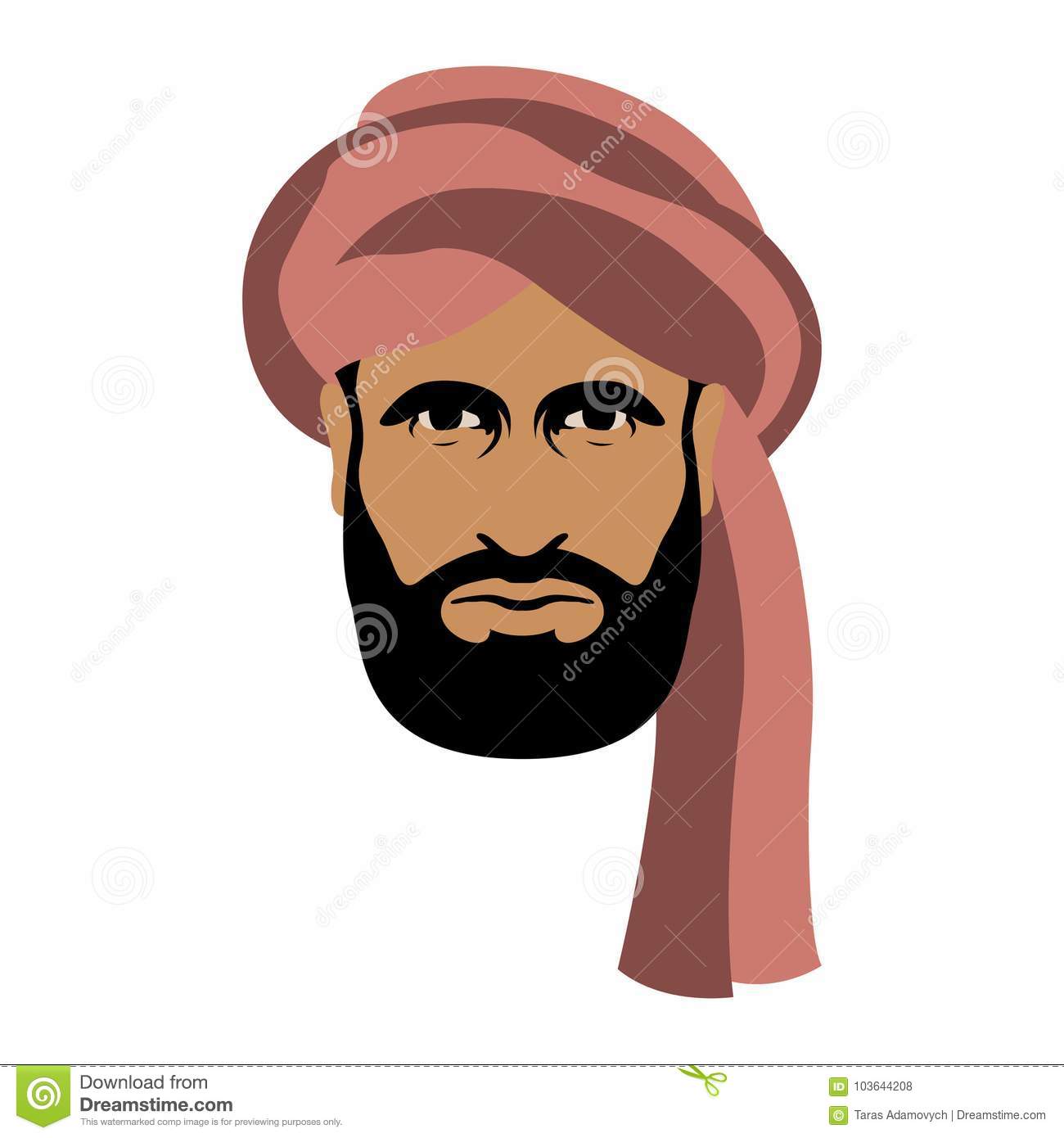
Theology: Part I
Theology focuses on questions that concern Allah, divine will, and other articles of faith. Referred to in Arabic as kalam (speech), theology developed in the Islamic world when early Muslim scholars defended their ideas against Christians, Jews, and other Muslims. Islamic theologians developed a system of reasoned arguments that inspired later scholars of all religions. Key issues include the relationship between faith and action, the nature of Allah and the Qur’an, predestination, free will, and the role of reason in interpreting scripture.
Origins Of Religious Thought
Islamic theology has its roots in ancient religious traditions of the Middle East and South Asia. Jews, Christians, Hindus, Buddhists, Sabian star-worshippers, and members of other groups discussed various aspects of faith with early Muslims. Zoroastrians promoted the idea of a cosmic struggle between good and evil. Jews and Christians emphasized monotheism and obedience to God. Greek philosophy contributed thoughts on the role of human beings in the universe. Muslim theologians often engaged in formal debates with other scholars and used these debates to spread their ideas. Most Islamic theological writings take the form of a conversation, and several schools developed from these discussions.
Khariji And Rightful Rule
The Kharijis (the seceders) applied the principles of Islam to politics. Originally supporters of the fourth caliph Ali ibn Abi Talib, they denounced him when he failed to crush his opponents in battle and agreed to arbitration instead. The Kharijis held that an individual who commits a major sin without repenting — as they believed Ali did — could not be a Muslim. Unlike the Sunnis and Shi’is, the Kharijis rejected the idea that an Islamic ruler must come from a certain lineage. They cited right action and faith as the only conditions of leadership. Devotion to Islam would cause a Muslim to practice virtuous behavior and would prevent him or her from committing an error. The race, sex, or color of a leader did not matter as long as that person practiced a pure form of Islam. The Kharijis envisioned their caliph as a religious authority who would wage jihad against all non-Muslims. They did not accept any of the existing leaders and constantly rebelled against them. The most severe Khariji sects failed to survive the first two centuries of Islam.
Tolerance Of The Murji’i
Jahm ibn Safwan (died 745), Abu Hanifah (died 767), and other scholars founded the Murji’i school in reaction to the extreme views of the Kharijis. Most Muslims felt little sympathy for the earlier group and followed the new one. The Murji’is avoided condemning Muslims who had committed grave sins. They believed that Allah served as the ultimate judge and that humans should not presume to take his place. They also maintained that Allah would deal with his subjects in a just, merciful manner. The Murji’is emphasized Allah’s goodness and charity instead of his anger, rejecting the idea that Allah punished sinners eternally.
The Murji’is further stated that faith mattered far more than deeds and that a person’s intentions should serve as the only basis for punishment. This idea influenced Muslim jurists and contributed to the Hanafi school of law, which became the most influential Muslim school. The Murji’is also rejected the Khariji position that Muslims should rebel against rulers who seemed unfit. They held that Muslims should support their rulers even if they disagreed with their policies or questioned their characters. They accepted the caliphs’ assertion that they ruled by virtue of Allah’s will.
Qadari And Free Will
The Qadari school of theology, founded by Ma’bad al-Juhani (died 699), Abu Marwan al-Dimashqi (died 730 ), and others focused on the issue of free will. Most Muslims believed that Allah controlled all events and that human choices for good or evil were predestined by Allah. The Qadaris stated that a power exists within each individual that makes him or her responsible for acts performed. This force distinguishes human behavior from all other events, over which Allah has full sway. The Qadaris stated that the existence of human freedom could alone justify Allah’s power to punish and reward individuals. Their arguments led to the idea that caliphs were responsible for their actions and should be held accountable. The Qadaris charged the caliphs of the Umayyad dynasty with emphasizing material gain over spirituality, and they joined opposition groups. The Umayyads executed the Qadari leaders al-Juhani and al-Dimashqi.
Mu’tazili Ideas On Reason
Founded by Wasil ibn Ata (died 748), the Mu’tazilis also concentrated on the question of free will. Like the Qadaris, they believed in human responsibility and taught that people could distinguish between good and evil without divine guidance. They cautioned Muslims to use reason when following the words of the prophets in order to avoid making harmful decisions. They described the Qur’an as providing two valuable services — guiding humans along the path to correct behavior and informing believers of the obligations of their faith, such as praying and fasting.
The Mu’tazilis maintained a belief in the oneness of Allah. They opposed nthe prevailing view of the Qur’an as a part of the divine essence, holding that the book had been created in time and space for a specific community. They claimed that Allah had no attributes, such as body parts, will, and anger, and that Muslims must not take any Qur’anic descriptions of such characteristics literally. On the matter of punishment, the Mu’tazilis held that Allah is perfectly just and that he could no more pardon sinners than he could refuse to reward the righteous.
The Umayyad caliph al-Ma’mun (ruled 813 – 833) supported Mu’tazili ideas and demanded that his legal scholars accept them. The Mu’tazilis did not attract large numbers of followers, however. Their association with the harsh policies of al-Mam’un and their emphasis on the use of reason alienated many Muslims. Mu’tazili ideas, however, remain influential among the Shi’i community.
Ash’ari Debates
One of the greatest Mu’tazili thinkers, Abu al-Hasan al-Ash’ari (died 935) went on to found the Ash’ari school of theology, which became the leading school of Sunni Islam. Al-Ash’ari used reasoned analysis to expose what he considered the weaknesses in the Mu’tazili school and to defend the elements of Islam that lay beyond the powers of human understanding. He did, however, believe that reason and logic could help support belief. Regarding human responsibility, al-Ash’ari maintained that individuals acquire the power to act only at the moment of action, when Allah creates this power. Al-Ash’ari also taught that Allah alone can judge behavior as good or evil.
Another Sunni theologian, Abu Mansur Muhammad al-Maturidi (died 956) challenged al-Ash’ari’s views. Maturidi believed that human beings are fully responsible for their actions, although their power to commit a certain act occurs only during the performance of the act. He also argued that human reason can distinguish between good and evil. Maturidi taught that people learn to control their passions by following the Qur’an and that any confusion about the meaning of the text lies within the reader and not within the holy book.
Philosophical, Mystical, And Political Influence
As Islamic theology developed, it became almost indistinguishable from Islamic philosophy. Many Muslim scholars, such as Ibn Sina (died 1035), Shihab al-Din Suhrawardi (died 1191), and Nasir al-Din al-Tusi (died 1274) devoted themselves to both areas, exploring the topics of Allah, free will, and the role of humans in the universe. They also wrote on a variety of other subjects, including mathematics, music, linguistics, and medicine. Other scholars rejected worldly matters to focus entirely on the mystical aspects of theology. Modern reformers used theological ideas to promote the creation of a Pan-Islamic state.
Contributions Of Philosophers
The author of over 200 books, Ibn Sina developed a sweeping philosophical theology that influenced such European thinkers as Saint Thomas Aquinas and René Descartes. He defined| Allah as the only necessary being, stating that he brings forth all other entities through the act of self-contemplation. Ibn Sina maintained that prophets have the most perfect understanding of Allah, surpassing rational thinkers. He described union with Allah as providing the greatest happiness because, unlike physical pleasure, it has no limit. It enables individuals to come into contact not only with the infinite, but also with their own origins and essence. All people have an inborn love of absolute good that inspires them to perfect themselves and seek out the divine.
Al-Tusi revived Ibn Sina’s ideas about 200 years after his death and popularized them. One of the most versatile of all Muslim thinkers, al-Tusi wrote almost 100 books, including commentaries on geometry, logic, astronomy, ethics, and mysticism. Al-Tusi did not believe in either absolute predestination or free will. He stated that the universe is the best of all possible worlds and that every entity has an assigned role and a destiny. Free will serves as one factor among many that causes events to occur. Individuals often remain ignorant of the mechanisms that determine their own will and the other forces that cause change.
Combining mysticism and philosophy, Suhrawardi also modified Ibn Sina’s teachings. He expressed Ibn Sina’s cosmological system in terms of light and darkness. Allah is the light of lights, and baser entities give off less illumination. After death, purified souls enter a world of light, while darker spirits travel to a realm inhabited by images that they create. Suhrawardi’s school became known as the School of Illumination.
Sufi Mysticism
The writings of Sufi philosophers and poets added a new dimension to Islamic theology. Abu Hamid al-Ghazali (died 1111), Ibn al-Arabi (died 1240 ), and Jalal al-Din Rumi (died 1273) all contributed to the discipline. Sufi tradition emphasizes the oneness of Allah and the practice of self-denial to achieve a union with the divine.
One of the most prominent mystical philosophers, al-Ghazali taught that Allah and the soul both operate according to will — Allah in creating the world, and the soul in seeking personal salvation. The noblest states of mind are transforming experiences such as exuberance, urgency, and intimacy. Al-Ghazali held that traditional scholars wasted their time in pointless discussions and that only Sufis walked the right path, combining knowledge with action and striving to experience Allah directly. Al-Ghazali believed that good Muslims did not need to understand complex matters that interested theologians. They had only to believe in the teachings of Allah and to try to bring him into their lives.
Ibn al-Arabi agreed with al-Ghazali that every person has the ability to experience Allah. Ibn al-Arabi took this idea further, however, stating that each individual serves as a reflection of one of Allah’s qualities. Because each person has a direct relationship with the divine, all faiths are valid. The only true reality is Allah, and Allah is the source of all love and beauty. Men’s appreciation for women, in particular, can serve as a vehicle for divine contemplation. In his writings, Jalal al-Din Rumi also transformed the longing he felt for specific individuals into a yearning for Allah. The most famous poet in the Islamic world, Rumi wrote thousands of verses detailing every dimension of the human union with Allah. Rumi often read his poems while performing a whirling dance, inspiring the creation of the Mawlawiyah.
Recent theological movements reflect the impact of Western colonialism, modern technology, and changes in family and social structures on the Islamic world. Jamal al-Din al-Afghani (died 1897) blended Islamic theology with politics. He offered religious grounds for a Pan-Islamic movement that would revive the caliphate and establish Islam as a world power. He declared that Muslims needed to strive for political and economic independence, recognize the superiority of Islam over other religions, and cultivate inner qualities such as modesty and honesty while following the Qur’an. Al-Afghani helped to inspire reform movements such as the Muslim Brotherhood and the Salafi movement in Egypt.
One of al-Afghani’s many followers, Muhammad Abduh (died 1905 ) also advocated large-scale social reforms. Like the Mu’tazilis, Abduh believed that both reason and revelation should guide individuals. He invited Muslims to participate in activist movements and follow Islamic principles in their lives. Another reformer, Muhammad Iqbal (died 1938) believed that modernization held the key to Islamic advancement. He encouraged Muslims to embrace science and technology, calling for a reinterpretation of the Qur’an that would lead to the creation of a modern Islamic state. His efforts helped to bring about the founding of Pakistan in 1947 .
Muhammad Husayn Tabataba’i (died 1989) was a prominent Shi’i theologian who also pushed for social reform. He acknowledged that objects can give pleasure, but taught that the mission of every human is to reflect on the true meaning of Islam and to submit completely to Allah. Tabataba’i’s ideas contributed to the Iranian Revolution of 1979 and continue to exert significant influence in Iran and other Muslim nations.
Andalusian Legacy
Córdoba, the capital of Muslim Spain, produced several leading philosophers and theologians. The scholar Ali ibn Hazm (died 1064) cited divine revelation, not logic, as the only source of truth. He argued for a literal interpretation of the Qur’an and attacked all others with such vigor that a popular saying likened his tongue to a sword. Moses Maimonides (died 1204), a Jewish philosopher, drew inspiration from Ibn Sina and Abu Hamid al-Ghazali. He incorporated their ideas into the Guide of the Perplexed, a text that attempts to formulate a rational philosophy of Judaism. Maimonides particularly revered the works of Ibn Rushd (died 1198), a Muslim theologian also from Córdoba. Educated in law, medicine, and poetry, Ibn Rushd maintained that philosophy and religion had the same goal — to help people live virtuously so that they could achieve salvation after death.
Theology: Part I
621 – 002
Last Update: 04/2021
Copyright © 2017-2021 Institute for the Study of Islam (ISI) | Institute-for-the-study-of-Islam-org | Discerning Islam | Discerning-Islam.org | Commentaries on Islam | © 2020 Tips Of The Iceberg | © 1978 marketplace-values.org | Values In The Marketplace | are considered “Trade Marks and Trade Names” ®️ by the Colorado Secretary of State. All Rights Reserved.



